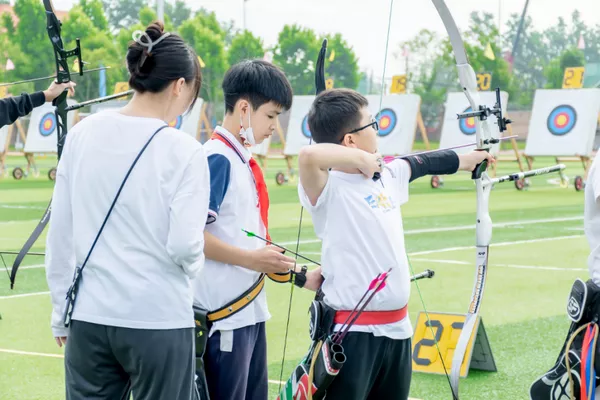Embarking on the journey to overcome introversion and shyness is a courageous and transformative endeavor. While introversion and shyness are natural personality traits, they can sometimes pose challenges in social and professional contexts. Recognizing that these qualities do not define one’s potential for self-expression and meaningful connections is the first step towards growth. In this exploration, we delve into practical strategies and insights that empower individuals to navigate their introversion and shyness, fostering self-confidence and authentic interaction with the world.
Understanding the Nature of Introversion and Shyness
Before delving into strategies to overcome introversion and shyness, it’s crucial to understand that these traits exist on a spectrum and are inherent aspects of personality. Introversion is characterized by a preference for solitude and internal processing of thoughts, while shyness is a social anxiety or discomfort, often manifesting as hesitancy in social situations. Acknowledging these traits as part of one’s natural disposition is the foundation for cultivating self-acceptance and initiating positive change.
Embracing Self-Acceptance and Personal Growth
The journey to overcome introversion and shyness begins with embracing self-acceptance. Recognizing that introversion and shyness are not flaws but unique aspects of one’s personality fosters a sense of self-worth. Committing to personal growth involves cultivating a mindset that views challenges as opportunities for learning and development. By adopting an attitude of self-compassion and acknowledging personal strengths, individuals lay the groundwork for overcoming introversion and shyness in a healthy and constructive manner.
Developing Social Skills Through Incremental Exposure
Overcoming introversion and shyness often involves gradually exposing oneself to social situations. Taking small steps, such as initiating conversations with familiar individuals or participating in low-pressure social activities, can be an effective way to build social skills. Incremental exposure allows individuals to stretch their comfort zones without feeling overwhelmed. With each positive experience, confidence grows, and social interactions become more manageable, contributing to the gradual overcoming of introversion and shyness.
See Also: How to Build Self-Esteem in Preschoolers?
Setting Realistic Social Goals
Setting realistic social goals is a practical approach to overcoming introversion and shyness. Establishing achievable objectives, such as introducing oneself to a new acquaintance or participating in a group discussion, provides a clear roadmap for personal growth. These goals should be tailored to individual comfort levels, allowing for a sense of accomplishment without undue pressure. Celebrating each successfully achieved goal reinforces a positive feedback loop, bolstering self-confidence in social situations.
Practicing Mindfulness and Present Moment Awareness
Mindfulness, the practice of being fully present in the current moment, can be a powerful tool for overcoming introversion and shyness. By cultivating present moment awareness, individuals shift their focus from self-conscious thoughts to the richness of the immediate experience. Mindfulness allows for greater immersion in social interactions, reducing anxiety and self-judgment. Incorporating mindfulness practices, such as deep breathing or meditation, into daily routines can contribute to a more relaxed and authentic approach to social situations.
Utilizing Visualization Techniques
Visualization techniques involve mentally rehearsing and imagining successful social interactions. This method allows individuals to confront and overcome anxious thoughts in a controlled, imaginative setting. Visualizing positive outcomes and envisioning oneself as confident and socially adept can help reshape self-perception. Regularly practicing visualization techniques contributes to building mental resilience, enabling individuals to navigate real-life social situations with increased ease.
Engaging in Social Support Systems
Overcoming introversion and shyness can be facilitated by cultivating supportive social networks. Surrounding oneself with understanding and encouraging friends or mentors provides a safe space for personal growth. Engaging in group activities, clubs, or communities with shared interests fosters connections based on common ground, making social interactions more accessible and enjoyable. Social support systems offer encouragement, guidance, and valuable insights, serving as a foundation for building confidence in social settings.
Seeking Professional Guidance
For individuals facing persistent challenges in overcoming introversion and shyness, seeking professional guidance can be a transformative step. Mental health professionals, such as psychologists or counselors, specialize in helping individuals navigate social anxiety and develop effective coping strategies. Professional support provides a confidential and non-judgmental space for exploring underlying issues, addressing self-limiting beliefs, and acquiring practical tools to overcome introversion and shyness.
Practicing Self-Compassion in Social Situations
Self-compassion is a key component of overcoming introversion and shyness. Rather than berating oneself for perceived social missteps, practicing self-compassion involves treating oneself with kindness and understanding. Acknowledging that everyone experiences moments of social discomfort and that it is okay to make mistakes fosters a sense of self-worth. Embracing self-compassion allows individuals to approach social situations with a forgiving and nurturing mindset, promoting resilience and growth.
Joining Toastmasters or Public Speaking Groups
Public speaking groups, such as Toastmasters, provide a structured and supportive environment for individuals to improve communication and overcome shyness. These groups offer a platform for practicing speaking skills, receiving constructive feedback, and building confidence in expressing ideas. Joining Toastmasters or similar organizations exposes individuals to a diverse and encouraging community focused on personal development, enabling them to overcome introversion and shyness in a public speaking context.
Embracing Rejection and Learning from Experiences
Overcoming introversion and shyness involves recognizing that occasional rejection or awkward social encounters are part of the learning process. Embracing rejection as a natural aspect of social interaction reduces the fear associated with it. Rather than viewing rejection as a personal failure, individuals can approach these experiences as opportunities for growth and learning. Each interaction, positive or challenging, contributes to the refinement of social skills and the gradual overcoming of introversion and shyness.
Utilizing Affirmations to Cultivate Confidence
Affirmations are positive statements that reinforce desired beliefs and behaviors. Utilizing affirmations regularly can be a powerful tool for overcoming introversion and shyness. Affirmations can focus on building confidence, acknowledging one’s worth, and embracing social interactions with positivity. By incorporating affirmations into daily routines, individuals reprogram their subconscious minds, fostering a more confident and self-assured approach to social situations.
Engaging in Improv Classes or Acting Workshops
Participating in improv classes or acting workshops offers a playful and dynamic way to overcome introversion and shyness. These activities encourage spontaneity, creativity, and quick thinking in a supportive environment. Improv classes, in particular, provide a space to step out of one’s comfort zone, build self-expression skills, and embrace the unpredictability of social interactions. The skills developed in improv or acting can translate into increased confidence and adaptability in various social settings.
Building Confidence Through Skill Development
Building confidence is a gradual process that can be accelerated through skill development. Acquiring new skills, whether related to hobbies, professional development, or personal interests, enhances self-esteem and provides conversation topics for social interactions. As individuals become more proficient in their chosen areas, they naturally exude confidence, contributing to the gradual overcoming of introversion and shyness.
Celebrating Social Successes and Progress
Recognizing and celebrating social successes, no matter how small, is essential for sustaining motivation and momentum in overcoming introversion and shyness. Keeping a journal of positive social experiences, reflecting on personal growth, and acknowledging progress all contribute to building a positive self-narrative. Celebrating successes reinforces the belief that overcoming introversion and shyness is an achievable and ongoing journey, fostering a sense of pride and accomplishment.
Conclusion
The journey to overcome introversion and shyness is a personal and transformative exploration that requires self-awareness, commitment, and a willingness to step outside of comfort zones. Understanding the nature of introversion and shyness, practicing self-acceptance, and engaging in gradual exposure to social situations are foundational steps. Incorporating mindfulness, visualization techniques, and seeking support from social networks or professionals further enhances the journey. Embracing rejection, utilizing affirmations, and participating in activities like public speaking or improv classes contribute to building confidence. Through intentional efforts, self-compassion, and a commitment to personal growth, individuals can navigate the path to self-expression, fostering authentic connections and a more fulfilling social life.
Related Topics:




























